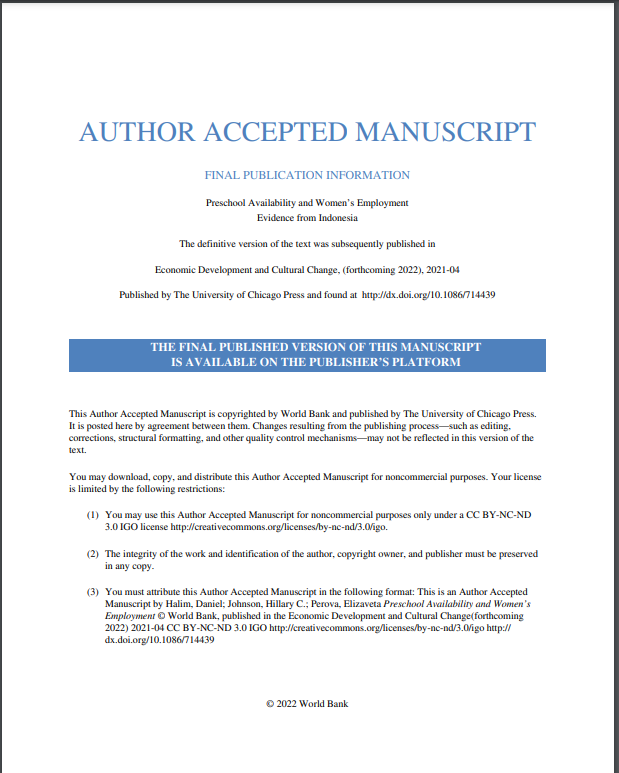Preschool Availability and Women's Employment : Evidence from Indonesia
Licencia: Creative Commons (by-nc-nd)
Autor(es): Halim, Daniel; [et al.]
While a large body of literature has documented positive impacts of institutional childcare on maternal labor supply, thinner evidence is available on whether childcare can also nudge women into better jobs in developing countries. We evaluate the impact of public preschool expansion in Indonesia on women's labor supply and characteristics linked to the quality of their employment, including employment types, earnings, and hours. We rely on a triple difference approach exploiting variations in preschool availability over time and across districts, as well as preschool-age-eligibility cutoffs, in a panel dataset spanning over 20 years. We find strong positive impacts on employment—an additional public preschool per 1,000 children in the district increases women's work participation by 9.1 percent. However, it is primarily driven by an increase in unpaid family work, typically in household farms or businesses. We do not find impacts on earnings or hours of work. These findings are likely explained by the modality of preschools in Indonesia: operating for only 3 hours per day, they are unlikely to enable women to secure a paid job outside the home with longer time commitments.
[2021]
Compartir:
Una vez que el usuario haya visto al menos un documento, este fragmento será visible.


